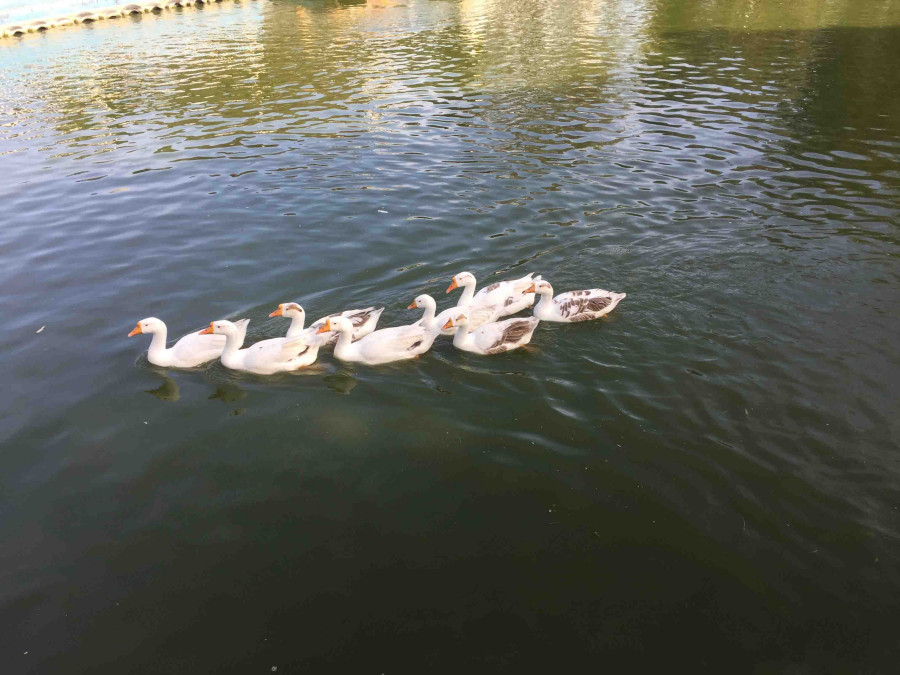Money
Mugu locals shift to duck farming
Farmers make more than Rs40,000 per trimester by selling ducks in the local market.
Raj Bahadur Shahi
It has been three years since Kammar Bista of Sipgaau in Soru Rural Municipality-7 switched to duck farming. He is satisfied with the move as his income has soared.
Bista used to keep local chickens but they didn’t yield much profit due to the high mortality rate.
“It’s easier to grow ducks as compared to chicken. There is a higher demand in the market for duck meat as well,” said Bista.
Bista has 15 ducks.
“Each duck gets sold for Rs2,000 when they are five months old,” he added.
Bista’s neighbour Govinda Bista also has 20 ducks.
Ducks are mainly raised in the Tarai. Now farmers in the mountain districts are also moving towards rearing ducks. Locals say they brought ducklings from Nepalgunj.
Around 45 families in Sipgaau, located at an altitude of 2,527 metres, have been rearing ducks.
“Now, ducks have become an attractive source of income to the locals,” said Surja Bista, a local farmer.
Surja started duck farming with 10 ducks three months ago.
“Within these three months, I have already made Rs40,000,” she added.
“Now I am rearing 30 ducks.”
The locals of Sipgaau now take the ducks along with them to sell in the market Gamgadi, the district headquarters. They return with the daily necessities such as vegetable oil, spices and rice.
Along with the locals of Sipgaau, villagers in Tarapaani, Bumch, Kacche, Kaalai and Jima have also switched to duck farming from chickens.
Pabitra Bista, another local of Sipgaau, said that the local chickens gain only a kilogram in three months while the ducks put on three kilos in the same period.
“Consumers find the meat of ducks raised in the mountains tastier than the ones raised in Terai. So, we have adequate market demand,” Bista said.
In addition to the villagers in Mugu, the locals of Sarkegaad and Adanchuli Rural Municipalities in Humla have also been attracted to duck farming after seeing the success of farmers in Mugu.
According to Suraj Karki, the locals of Mugu brought broiler chickens from Nepalgunj soon after the villages were connected to the road network. But the local chickens were prone to disease.
Now, farmers of Sipgaau alone raise more than 3,000 ducks.
Ducks lay up to 16 eggs in a season, which is from mid-March to July-end. Ducklings are hatched after 28 days of incubation.
“The ducks rear in the farmlands and rivulets, so the locals don’t have to worry about buying feed for them,” said Karki.
But ducks are prone to attack from foxes and eagles.
Soru Rural Municipality distributed around 1,200 chicks of broiler chickens and ducks to local farmers this fiscal year.
“But the farmers have shifted towards ducks,” said Purna Sejuwal, chief of the livestock division of Soru Rural Municipality.
“Until three years ago, there was not a single duck in the village. Now almost everyone in the village rears ducks.”
But the introduction of ducks–a new species for the local ecosystem, is a threat to the indigenous species of animals and crops.
Dharma Bahadur Shahi, chief of Soru Rural Municipality, said that the rural municipality has introduced a special programme for the conservation of indigenous species.
The local government has allocated Rs2 million for the implementation of this programme from the next fiscal year, said Shahi.




 14.24°C Kathmandu
14.24°C Kathmandu.jpg)















